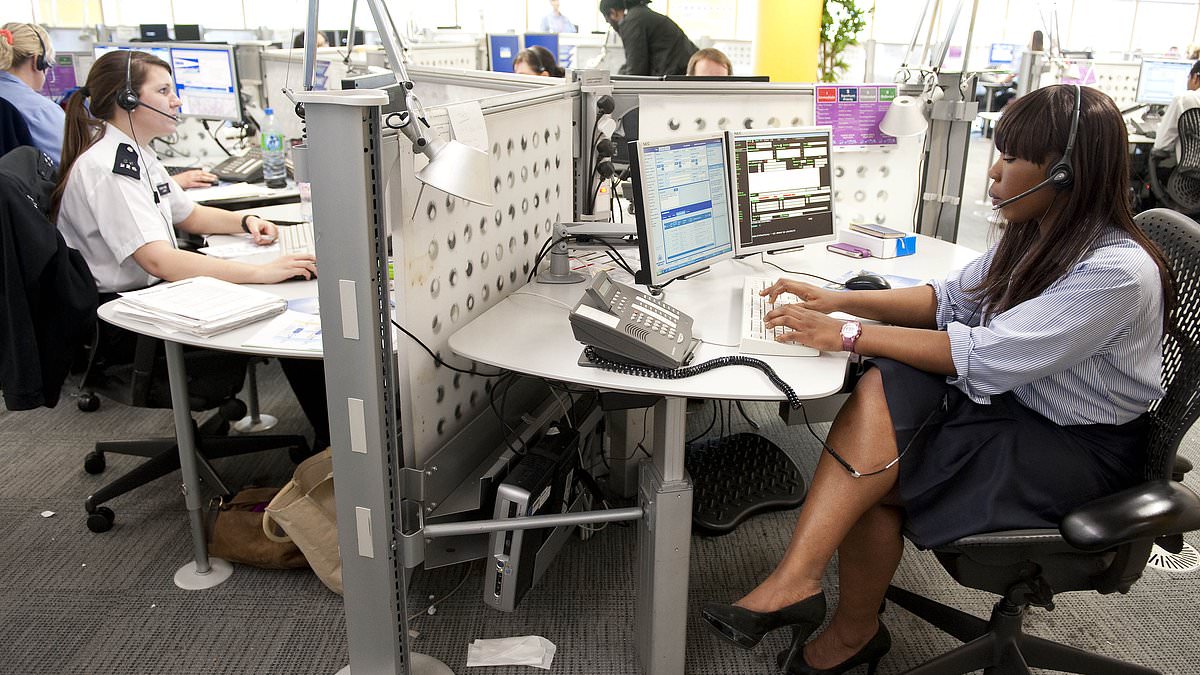Police trialling an AI voice assistant to help with non-emergency calls feared that it wouldn’t understand Brummie accents, it has emerged.
West Midlands Police set out a series of risks for the system, called Amy 101, in a document erroneously published online and seen by the BBC.
This included a potential difficulty in deciphering what exactly was being said by local callers.
The office of the West Midlands Police and Crime Commissioner (PCC) mistakenly posted the document, which has now been removed, and it was marked with warnings to ‘not be publicly disclosed’.
The force insisted, though, that ‘robust safeguards’ were in place so that vulnerable people reporting serious crimes were quickly identified and prioritised to speak to call handlers.
It comes as the latest AI assisted trial by the UK police force after ‘Orwellian’ facial recognition cameras were described as ‘enormously inaccurate’ and ‘enforcing discrimination’.

West Midlands Police were ‘worried’ that an AI voice bot for 101 calls would fail to understand the ‘Brummie’ accent. Pictured: Birmingham city centre

In a leaked document, West Midlands police explored a number of safeguarding issues with the system
Amy101 was designed to speak or text-chat to help with callers’ inquiries and was expected to handle roughly 200 calls per day.
The project, which was nationally funded, was set to last for a two month proof-of-concept trial but police would be able to opt-out.
As the first project where an AI-powered tool would speak to 101 callers, ethical questions were also raised about the voice and ‘gendered’ name of the tool. But the force argued that ‘humanisation’ was needed.
West Midlands Police confirmed that the trial began on December 19, 2023, and had now concluded.
A spokesperson for the force said it has ‘become one of the top performing police forces for managing emergency and non-emergency calls’.
It also claimed the AI trial was ‘a very small part of wider transformation programme we have implemented within our call handling teams’.
Last year, it was revealed that policing minister Chris Philp is understood to be pushing behind closed doors to expand the use of the controversial AI-driven technology.
Mounted atop police vans or on officers’ body armour, the rumoured facial recognition cameras would work by scanning every face in a crowd to find known troublemakers.
The move has sparked anger among privacy campaigners, who have branded the ‘Orwellian’ cameras overly intrusive and claim they remain largely inaccurate.
In 2023 privacy campaigners also raised warnings over Big Brother-style ‘AI’ speed cameras which use a 4D scanning system to watch drivers inside their cars.
![The software, called Amy 101, was trialled to help deal with the rising number of non-emergency calls [Stock picture of police officers in Birmingham City]](https://i.dailymail.co.uk/1s/2024/03/07/12/82157985-13168347-image-a-32_1709814713736.jpg)
The software, called Amy 101, was trialled to help deal with the rising number of non-emergency calls [Stock picture of police officers in Birmingham City]
A new ‘Redspeed Sentio’ unit made by Kidderminster-based Redspeed International can also catch motorists using their mobile phone or not wearing a seatbelt.
The ten-inch camera can detect whether too many people are inside a vehicle, as well as spotting those who are speeding or going through a red light.
The camera can also be linked to databases from police forces and the Driver and Vehicle Licensing Agency to check vehicles are properly taxed and insured.
But privacy campaigners have criticised the ‘intrusive and creepy surveillance’, with motoring experts calling for an ‘easy means of drivers challenging penalties’.
Six lanes can be monitored around the clock by the solar-powered device, which can also work with other units to check average speeds.
